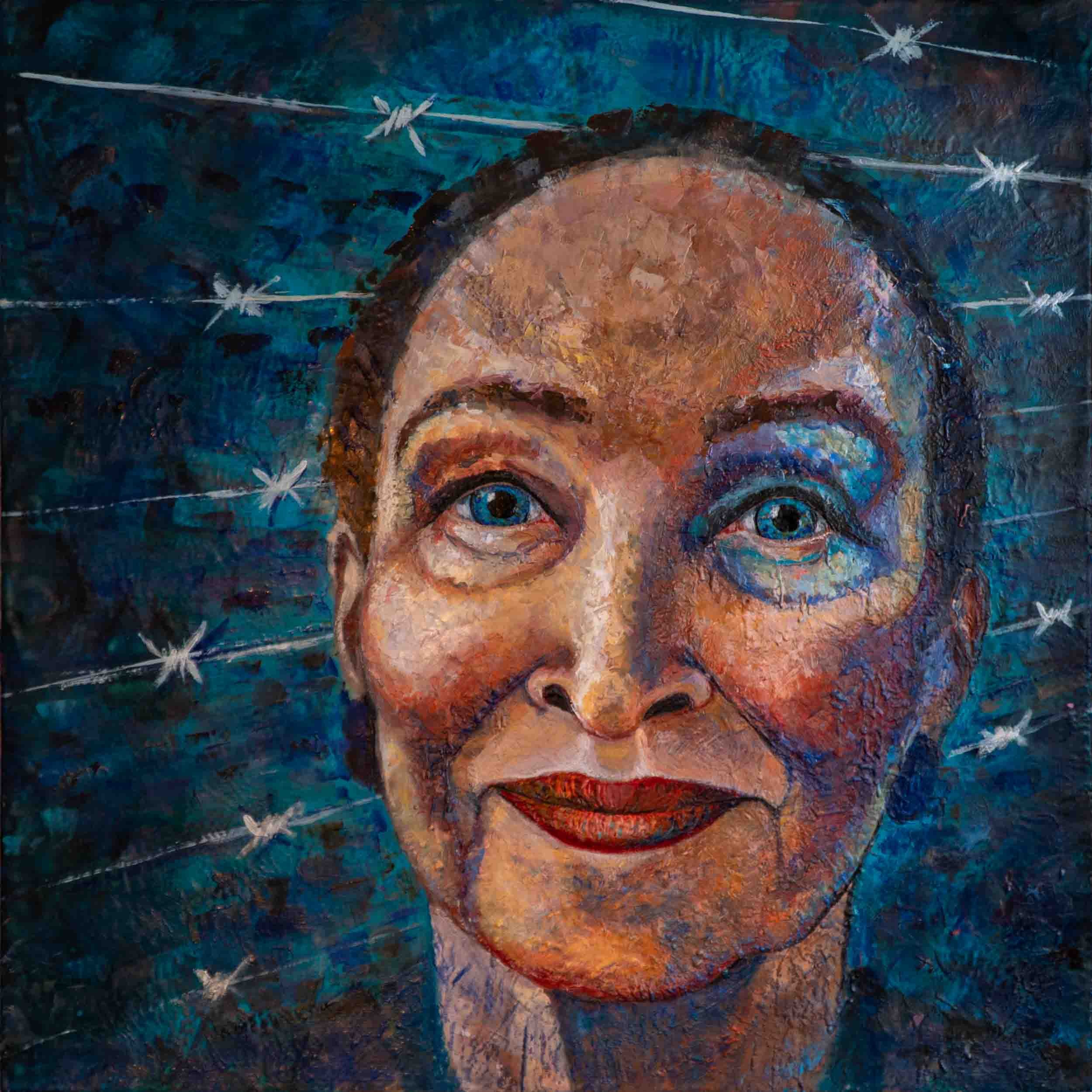Deborah
Impression of rosalie abella
“Justice is the application of law to life, not just the application of laws to facts.
Compassion is a better interpretive tool than passion [but] passion is better than indifference.”
In June 2020, Germany awarded Rosalie Abella the Knight Commander's Cross of the Order of Merit.
Abella is the daughter of Holocaust survivors and was born in a displaced persons camp in Stuttgart, Germany.
http://www.thecourt.ca/judicial-biography-justice-rosalie-silberman-abella/
https://www.guelphmercury.com/news-story/7328169-supreme-court-justice-takes-aim-at-narcissistic-populism-in-graduation-speech/
Rosalie Abella (Photograph by Jennifer Roberts)
Deborah
Deborah means ‘bee’ in Hebrew. Her story is found in the Book of Judges in the Hebrew Bible. She was an exemplary prophetess, who succeeded in delivering her people from the hands of their oppressors.
Deborah was the wife of Lapidot, and was brought to the people of Israel as a judge at a time when the tribes were unstable and straying from the laws of God and Moses. The Jews had long since left Egypt, but had not yet entered the Promised Land of Canaan. As punishment “God handed them over to the King Jabin of Canaan, whose army commander was Sisera.” (Judges 4:2).
In an effort to unite the tribes of Israel and answer their pleas for help, God ordered Deborah to send an army against the neighboring Canaanites who were causing friction. He assured her of a victory.
Deborah was unable to lead an army herself, being a woman, and so she enstated a warrior called Barak, who was afraid to fight. He said to Deborah, “If you will go with me, then I will go. If you won’t go with me, then I will not go.” (Judges 4:8). Deborah’s role as both warrior and prophetess transformed the status of women, who were otherwise seen as inferior to the male leaders.
The story of Deborah’s role as a prophet portrays a woman of unfailing strength and courage. Her leadership and loyalty served to carry her people to safety. In all the other tales of the women in the Hebrew Bible, God finds fault in their ways and reminds them of their place as women. Deborah is the only example of a Jewish woman who, as leader, was given sole reign.
Deborah agreed to accompany Barak into battle. She forewarned him: “The journey that you take shall not be for your glory, for God will deliver Sisera into the hand of a woman.” (Judges 4:9). Deborah thereby highlights the power of the Divine Feminine, who, in this tale of feminine superiority, found no place for her male counterpart.
A woman called Yael, who was neither Canaanite nor of the tribes of Israel, took Sisera into her tent like spider to bait. In this story, her tent is portrayed as a womb. Yael is said to have fed the Canaanite leader with milk before slaying him with a tent peg.
Once Sisera was slain Deborah rejoiced in song. Her words of victory are recorded in the form of a poem in the Hebrew Bible: “The village life in Israel ceased, ceased ‘til I Deborah, arose. Arose a mother in Israel…” (Judges 5:7). This is only a portion of the heroic cries of Deborah.
Deborah made special mention of Yael in her song. Yael was portrayed in her verses as a woman of peace who protested against the male ways of war, using her own skills of manipulation. The women, who so often became the spoils of war, were eternally grateful to Yael, for her epic role reversal that led the Jewish nation to victory, ensuring peace for forty years.
Little wonder that Deborah was not received well with the rabbinical scholars of the Hebrew Bible – she did not match the typically feminine ways of the other mothers of Israel. Scholars thought her arrogant and egotistical. Like Miriam, her purpose was not to conceive a child but to deliver a nation. She did so with confidence and pride.
Called Deborah of Lapidot, her husband, her name also translates as Deborah, Woman of Flames. She is symbolic of the fiery female warrior, whose vision and might made her the only woman to lead her people through war and peace.
Deborah, as the ‘queen bee’ of her time, used her strength and intelligence to reunite her people, and return them to a faith in their God. Hers is a unique tale of the victorious woman, which has inspired Jewish women through the ages.
Text courtesy of BJE
https://www.macleans.ca/news/rosie-abella-said-shed-answer-questions-when-she-turned-75/
Themis (source Wikipedia)
References
- https://news.un.org/en/story/2022/01/1110632
- New Larousse Encyclopedia of Mythology, Hamlyn Publishing Group Ltd., New York, 1959
- Ancient Mirrors of Womanhood, Merlin Stone, Beacon Press, Boston, 1984
- Dictionary of Greek and Roman Biography and Mythology
- When God Was A Woman, Merlin Stone, Harvest Edition, 1976
- The Civilization of the Goddess, The World of Old Europe, Marija Gimbutas, HarperCollins Publishers, 1991
- The Language of the Goddess, Marija Gimbutas, HarperRow publishers, San Francisco, 1989


